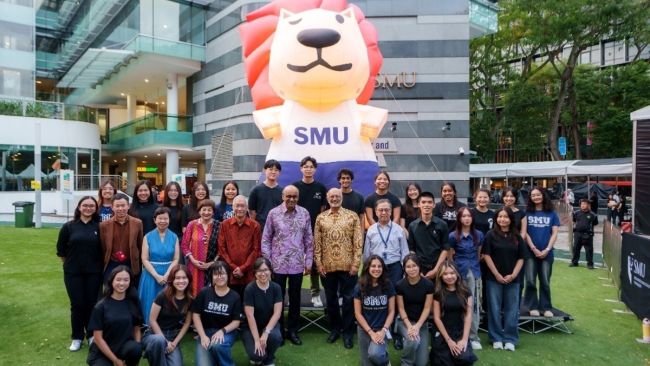
Creativity, community, and campus spirit take centre stage at SMU Patron’s Day 2026
Published onSMU Patron’s Day 2026 brought Campus Green alive with performances, Makers showcases, competitions, and student-led activities, graced by Patron and Guest of Honour President Tharman Shanmugaratnam. His presence highlighted SMU’s strong community spirit, creativity, and shared sense of purpose among students, staff, alumni, and partners.
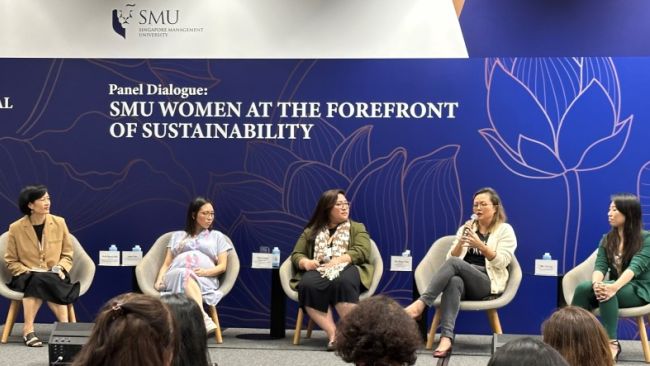
Among the many events and initiatives organised by SMU in celebration of International Women’s Day (IWD) in March 2023 was a panel dialogue themed ‘SMU Women at the Forefront of Sustainability’. The panel consisted of leading SMU alumnae who have each played important roles in driving sustainability efforts in their respective fields.
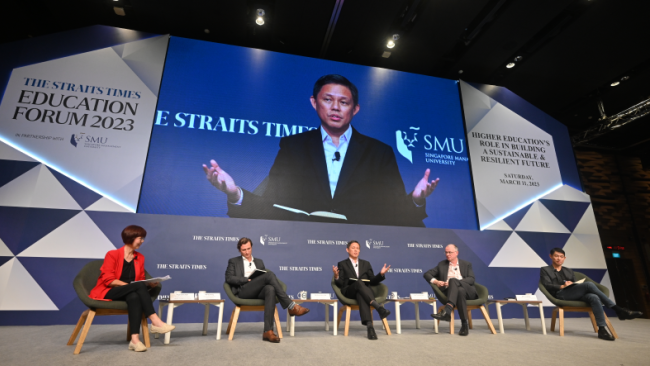
Straits Times Education Forum 2023 in partnership with SMU
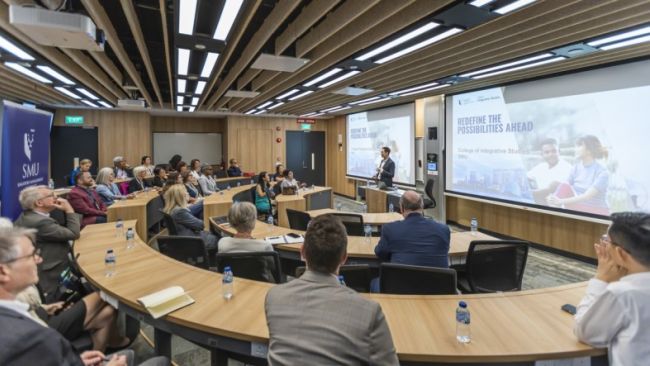
As we look to the future, Canada and Asia's relationship has never been more important. With a world of vast potential, there is an unprecedented opportunity for nations to take meaningful steps towards unlocking that potential and catalysing new growth in education, business exchange and mutual understanding.
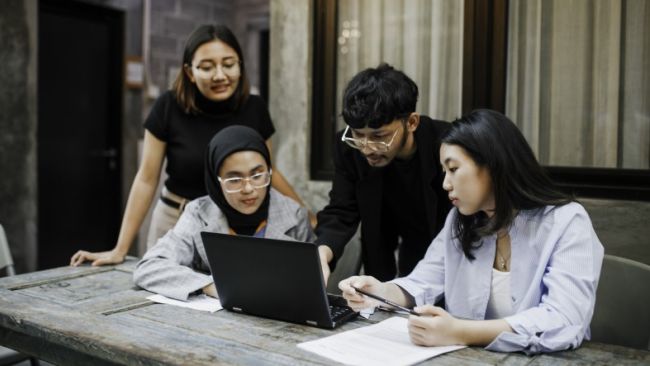
The Karim Family Foundation has made a generous contribution to SMU with the establishment of the Karim Family Foundation Scholarship. The new scholarship was announced at a Gift Ceremony held on 27 February 2023, at the SMU University Lounge. This scholarship was initiated by SMU alumni Cindy and Chayadi Karim, who graduated from SMU in 2014 and 2015 respectively. They are the children of Bachtiar Karim and Dewi Sukwanto, Principals of the Karim Family Foundation.
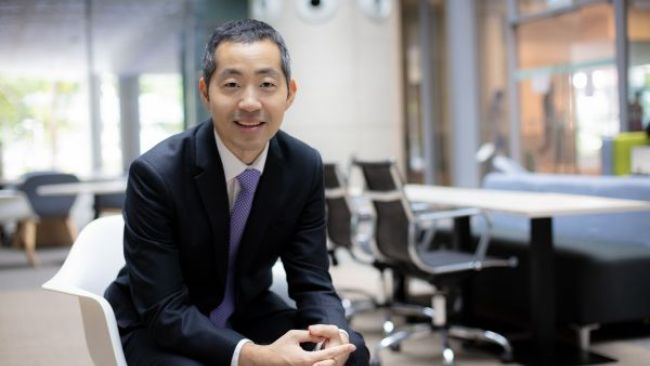
As we strive for a better understanding of ourselves and the world around us, research into prosociality has brought about ground-breaking implications in psychology. A term that is also used in sociology and evolutionary biology, prosociality refers to behaviours that benefit other individuals or society as a whole. This includes altruism (giving voluntary assistance without any expectation of reward), cooperation (collaborative behaviour through joint activity) and helping behaviour (providing assistance in response to another's need).

On 10 February 2023, SMU paid tribute to its longest-serving Trustee and Chairman, Mr Ho Kwon Ping who had stepped down from the position. Over two and a half decades, Mr Ho had made an incredible impact on the University and its growth, so it was only fitting that his contributions were recognised by both current and past members of the SMU Board of Trustees and an illustrious guest list of VIPs during the Appreciation Event for Mr Ho held at the SMU Hall.

SMU’s new Chairman, Mr Piyush Gupta, hosted Singapore President Madam Halimah Yacob at the University’s Patron’s Day celebration on 13 January 2023. After two years of holding the event in hybrid format, students, faculty, staff, friends of SMU and the members of the local community enjoyed the much-anticipated annual event live on campus. This year marks the 23rd anniversary of Singapore Management University (SMU) and to commemorate the occasion, SMU students, alumni, staff, and members of the public gathered at Campus Green for an extravaganza event like no other.
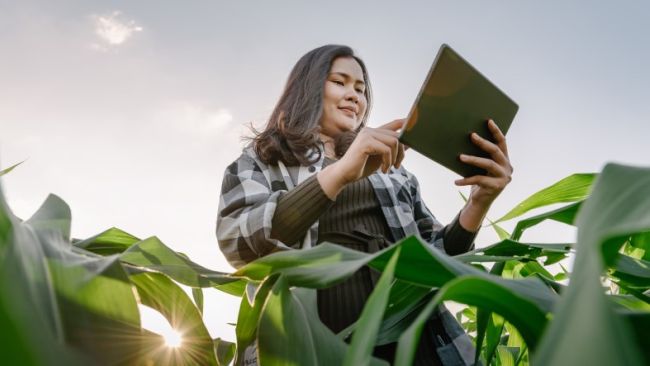
During SMU’s first Presidential Distinguished Lecturer Series (PDLS) held overseas, in Jakarta, SMU President Professor Lily Kong moderated an eminent panel who spoke on the importance of developing a talent pipeline pertaining to sustainability in Indonesia, as well as exploring various strategies to help bridge existing skills shortages.
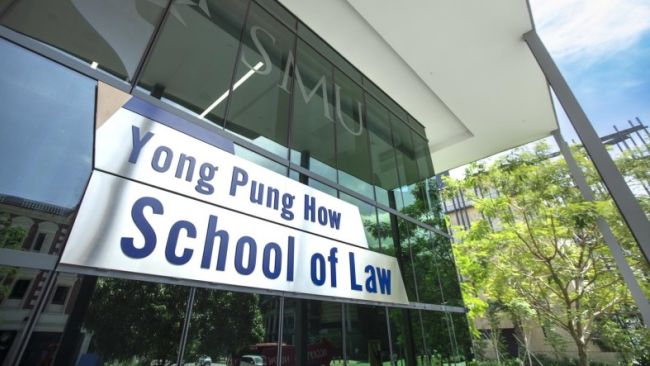
A generous $20 million gift from the family of the late Dr Yong Pung How sets to establish a financial aid programme, fellowship programme and a research fund to further the legal discipline at SMU’s Yong Pung How School of Law.
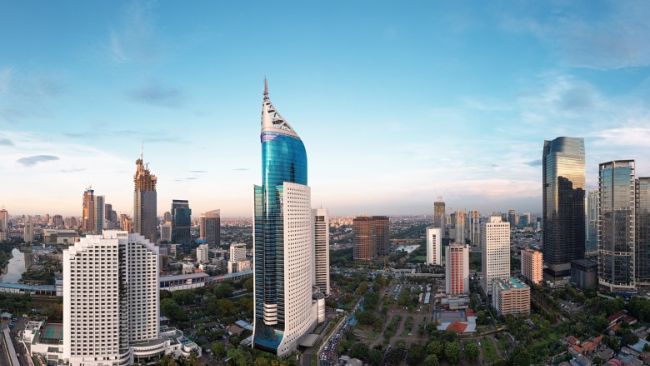
The first SMU Overseas Centre is proud to nurture a knowledge climate in which intellectual and cultural diversity is respected and embraced, to drive the economic development of communities and sectors in Indonesia. In an age of rapid technological advancement and globalisation, the need for knowledge exchange between different regional networks has become increasingly important. To drive its strategic priority of Growth in Asia, SMU has unveiled its first Overseas Centre in Jakarta, Indonesia.
